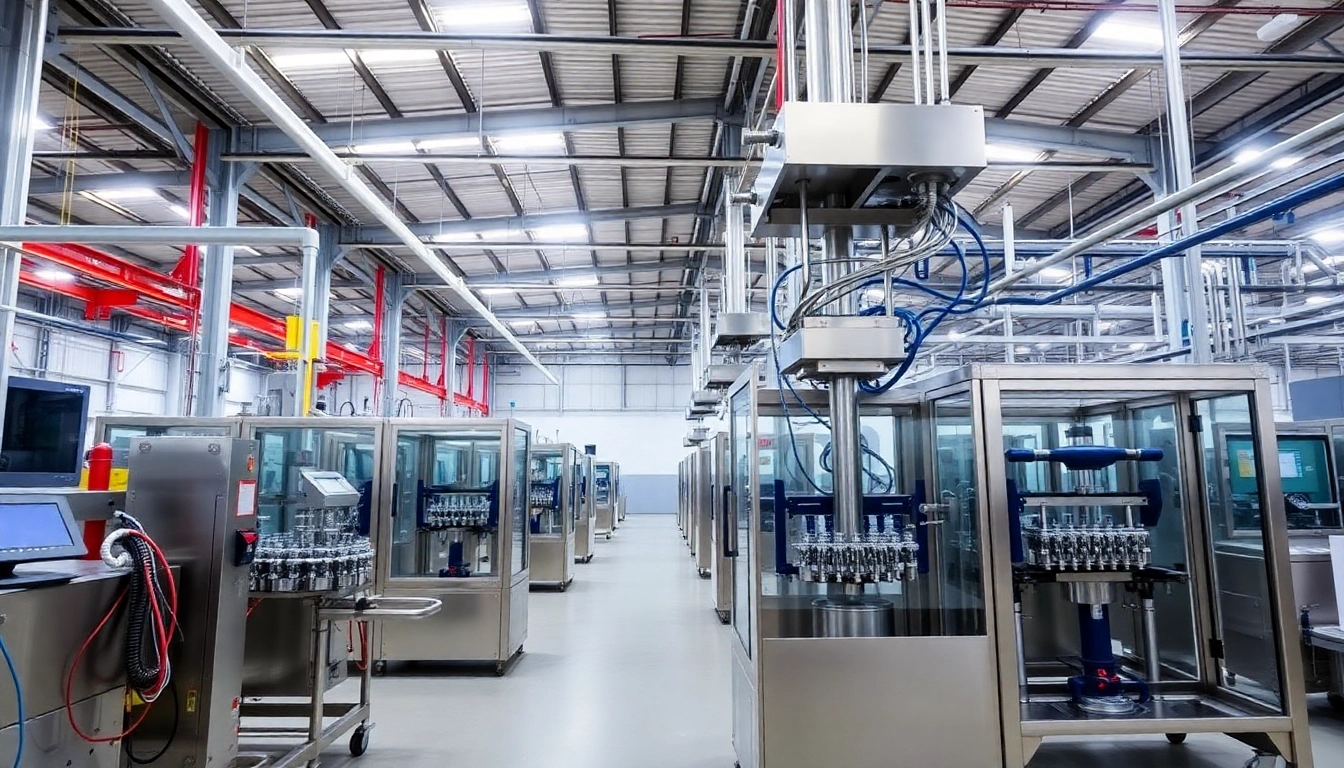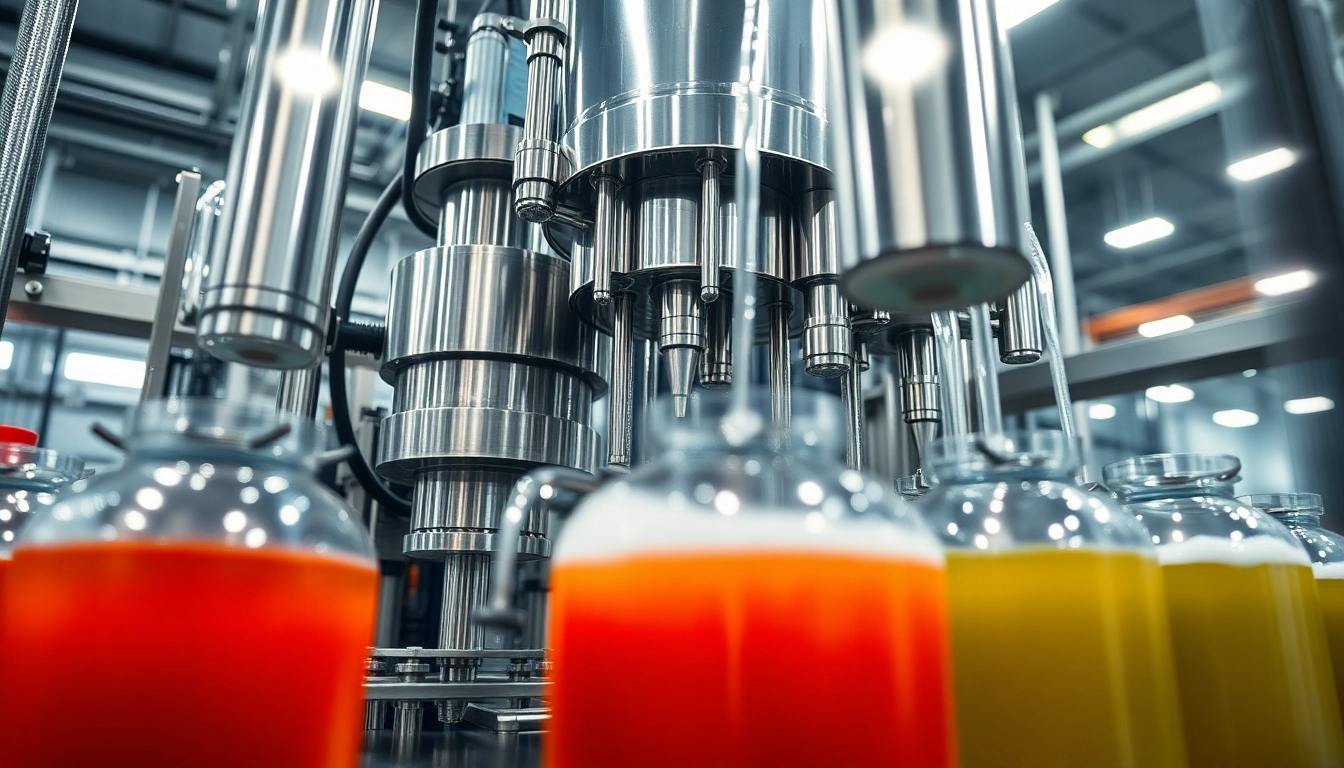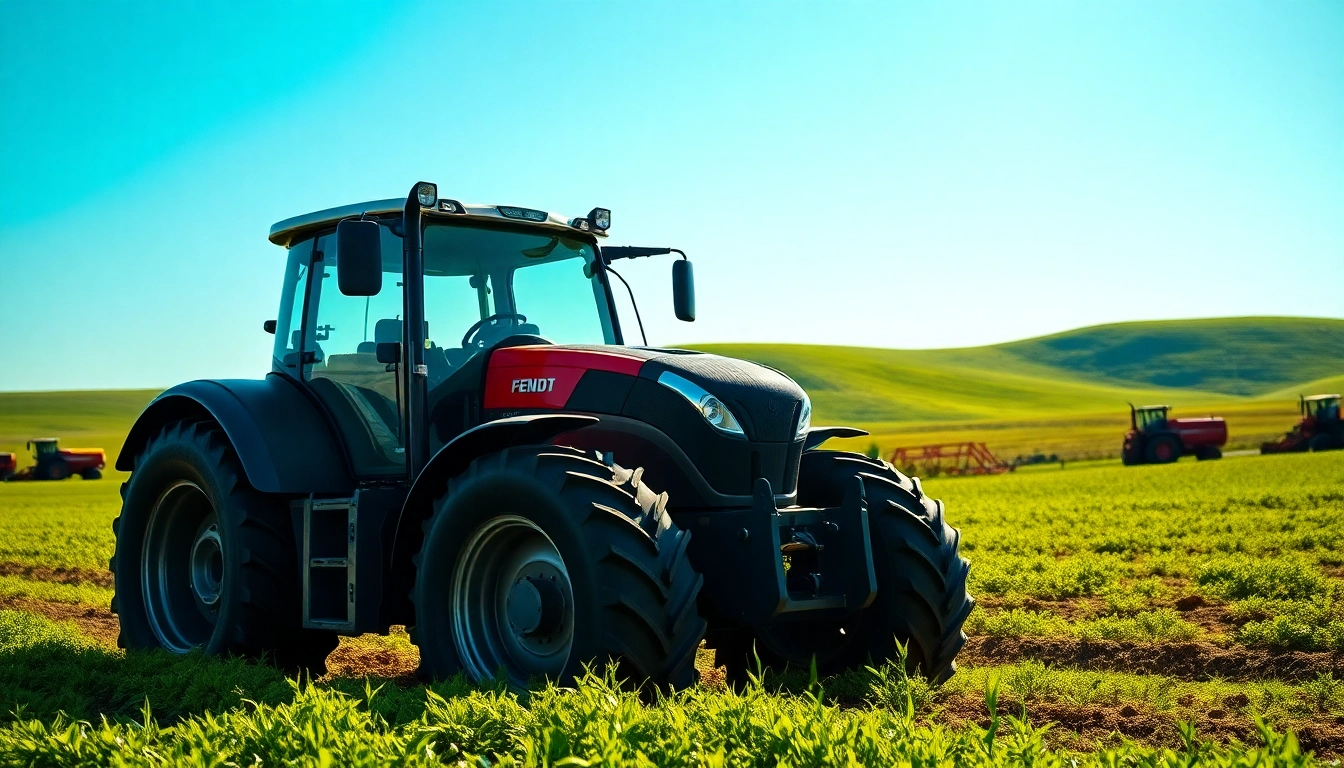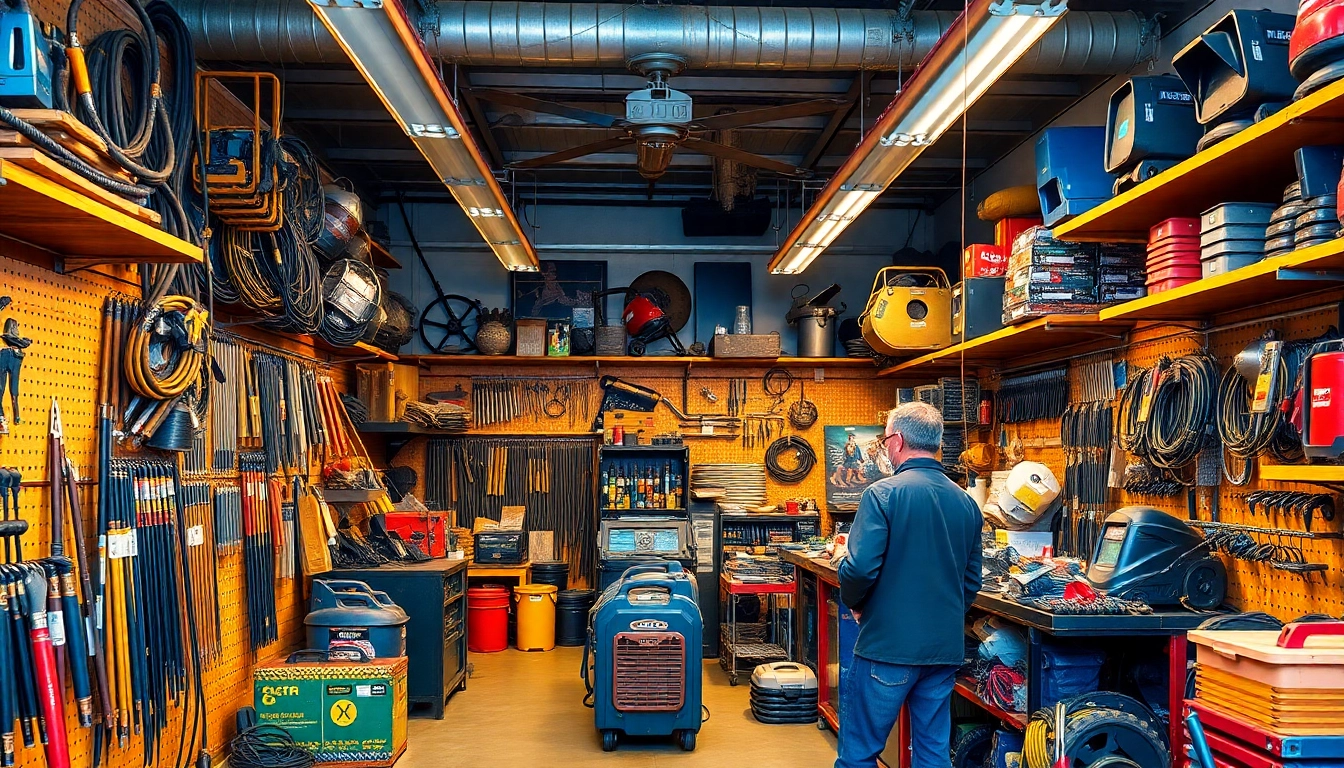Introduction to Filling Machine Manufacturers
In today’s competitive manufacturing landscape, the role of specialized equipment is vital, particularly in ensuring efficient production and quality control. One such essential equipment is the filling machine. These machines automate the process of filling containers with liquid, granulated, or powder products with high precision. As a result, Filling Machine Manufacturers have emerged as key players in various industries, helping businesses optimize their operations. In this article, we will dive deep into the world of filling machines, their importance, the leading manufacturers in the industry, types of filling machines and their applications, guidance for choosing the right machine, and future trends that are shaping the field.
What are Filling Machines?
Filling machines are automation devices that fill products into various types of containers, such as bottles, jars, or pouches, depending on the application. These machines come in various types, designed specifically for different substances, from liquids, including water and oils, to granulated or powdery materials, like sugar and flour. The precision, speed, and reliability offered by filling machines are what make them indispensable in manufacturing.
Importance of Quality in Manufacturing
Quality assurance is paramount in any manufacturing setting. The accuracy of filling machines ensures that the correct amount of product is dispensed, which can prevent customer dissatisfaction, legal issues from overfilling or underfilling, and wastage of materials. High-quality filling machines also reduce downtime and maintenance needs, thus enhancing productivity and operational efficiency. As such, partnering with reputable filling machine manufacturers guarantees access to cutting-edge technology and services dedicated to producing reliable equipment.
Key Industries Utilizing Filling Machines
The applications of filling machines span across several industries. These include:
- Food and Beverage: Essential for liquid and solid products, including sauces, juices, and dry goods.
- Cosmetics: Used for filling creams, lotions, and other personal care products.
- Pharmaceuticals: Critical for maintaining the exact dosages of syrups, tablets, and powders.
- Chemicals: Used for a range of substances, from adhesives to cleaners.
- Petroleum: Filling machines handle various oils and fuels, underscoring their versatility.
Leading Filling Machine Manufacturers in the Industry
Overview of Major Players
Several companies are recognized as leaders in manufacturing filling machines. Each of them brings unique innovations and services to the market:
- Accutek Packaging Equipment Company, Inc.: Known for a diverse range of filling machines capable of handling various types of products and containers. Their reputation for reliability and a quality assurance approach places them at the forefront of the industry.
- Cozzoli Machine Company: This company specializes in liquid filling, capping, and washing machines, known for their efficiency and precision in high-demand production environments.
- Volumetric Technologies: An American company that focuses on bottle-filling automation, presenting innovative solutions tailored to industry demands.
- Oden Machinery: Offers a full range of filling systems adaptable to numerous sectors, emphasizing performance and durability.
- E-PAK Machinery: Provides not only filling machines but also essential packaging equipment, creating a one-stop solution for businesses.
Innovative Features to Look For
When investing in filling machines, it’s crucial to understand the innovative features that can enhance productivity and efficiency:
- Automated Controls: Look for machines with advanced automation and user-friendly interfaces allowing real-time monitoring and adjustments.
- Changeover Capability: Machines that can be easily reconfigured allow manufacturers to switch between different product lines without significant downtime.
- Sustainability Features: Energy-efficient machines reduce operational costs and environmental impact, aligning production practices with eco-friendly goals.
- Enhanced Accuracy: Technologies like servo motors and load cells ensure precise filling, lowering waste and improving quality consistency.
Case Studies: Success Stories
Examining success stories can illuminate the capabilities of filling machines in real-world applications. For instance, a beverage company in New York increased its production rate by 30% after upgrading to newer filling technologies. The transition to automatic fillers not only streamlined operations but also significantly reduced costs associated with manual filling processes. Such results underscore the impact quality filling machines have on operational efficiency and profitability.
Types of Filling Machines and Their Applications
Volumetric Filling Machines
Volumetric filling machines are widely used across industries. They measure liquid volumes based on preset amounts and are especially efficient for liquids. The key advantage of volumetric fillers is their speed and precision, making them ideal for high-volume production lines. Common applications include soft drinks, sauces, and other liquids where consistency is critical.
Piston Filling Machines
Piston filling machines utilize a piston to draw substances from a hopper and release them into containers. These machines can handle various viscosities, from water to thick sauces. Their flexibility makes them suitable for industries such as food and pharmaceuticals, where both liquid and paste-like substances are prevalent.
Gravity Filling Machines
Gravity filling machines rely on gravity to determine the volume of liquid being filled, making them best suited for thin and free-flowing liquids. They are less complex compared to their volumetric counterparts and are typically used for products like water, wine, and some personal care items. The simplicity of gravity fillers also offers an economical choice for many small operations.
Choosing the Right Filling Machine for Your Business
Factors to Consider
Choosing the appropriate filling machine for your business necessitates a thoughtful analysis of several critical factors:
- Type of Product: The nature of the product — liquid, semi-liquid, granulated, or powdered — directly influences the type of filling machine required.
- Production Volume: Understanding your production capacity needs will help you select a machine that meets expected throughput without bottlenecks.
- Budget: Evaluate the total cost of ownership, including purchase price, maintenance, and operating costs, balancing initial investment with long-term benefits.
- Regulatory Compliance: Choose machines that adhere to industry regulations to avoid legal hurdles, especially critical in food and pharmaceutical manufacturing.
Customization Options
Customization is key when investing in filling machines, as no two production lines have identical needs. Many manufacturers offer tailored features, such as:
- Adjustable Filling Speeds: Machines that can be fine-tuned for different fill rates based on production demands.
- Multiple Fill Heads: For high-volume operations, having multiple heads speeds up the filling process, enhancing productivity.
- Material Configuration: Choose machines with components suitable for specific products, such as sanitary stainless steel for food-grade applications.
Crisis Management and Support
After selecting a filling machine, it’s essential to consider the supplier’s support and crisis management capabilities. Effective support can minimize downtime. Look for:
- Training Programs: Suppliers offering comprehensive training for operators to maximize machine efficiency.
- Maintenance Contracts: Regular maintenance ensures machines run optimally and prevents unexpected breakdowns.
- Responsive Technical Support: Suppliers that provide quick responses to inquiries or issues can significantly impact production continuity.
Future Trends in Filling Machine Manufacturing
Technological Advancements
The landscape of filling machine technology is rapidly evolving, with advancements aimed at improving speed, accuracy, and usability. Innovations such as machine-to-machine communication, predictive maintenance, and smart controls are becoming standard features. Incorporating AI in quality control processes is likely to enhance production reliability and reduce human error.
Sustainability in Manufacturing
As sustainability continues to rise in importance across sectors, filling machine manufacturers are increasingly integrating eco-friendly practices. These measures include not only energy-efficient machines but also the ability to handle recyclable packaging materials, reducing overall environmental footprints.
Market Projections and Opportunities
Industry analysts predict a continuous rise in demand for filling machines, particularly from emerging economies looking to bolster their manufacturing capabilities. Technological advancements and increased automation are likely to drive significant growth, presenting opportunities for both established manufacturers and new entrants into the market. Understanding these trends allows businesses to make informed decisions regarding their filling machine investments.



